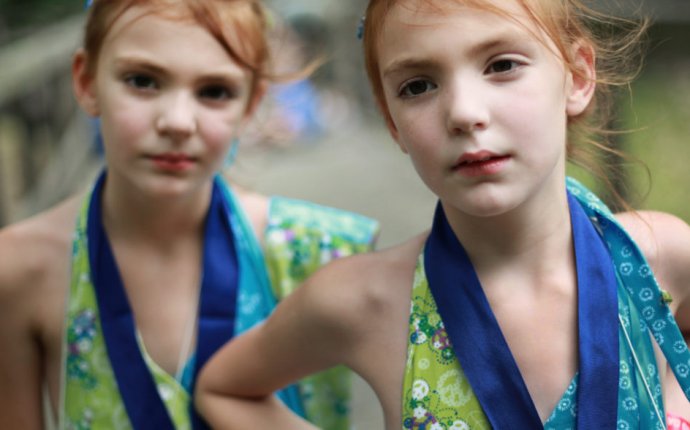
twins Psychological Problems
|
Identity Issues |
|
|
Twins may be identical, but they're not interchangeable; people need to know this! |
How to distinguish between us when we look so alike? For identical twins, people not bothering to, or not being able to, distinguish between them is likely to reinforce the twins' tendency to be seen as a unit (the twins) rather than as two unique individuals. |
|
Growing up I always thought of myself as an individual (as well as a twin) and it was strange to me that other people didn't see this as well. (Just because we looked so much alike and hung out together all the time ). |
We were often called "the twins" and I guess at the time I didn't really mind. Looking back though I suppose it really was because people didn't see us as properly separate individuals. Even our friends, who could easily tell us apart, sometimes referred to us as the twins rather than using our names. I think some of it is just people's laziness, not bothering to recognise and develop separate relationships, but I think some of it is also because twins have such a close bond that it sort of shuts other people out. |
|
Problems with "unit identification" during early development mean that some twins find it hard to discover themselves as separate individuals (rather than one of a pair). When my twin sister and I went our own seperate ways, it was hard to deal with being apart. It was difficult to contemplate "me" alone without my twin; she'd always been such an integral part of me. Who was I if she wasn't around? |
Who are "we" versus who am "I"? A big problems for identical twins (and fraternals, to a lesser extent) is what is known as individuation. This relates to the psychological issue of identifying as an individual. For most singletons this occurs around the age of 3-4 years as they go through the "I" stage - learning to distinguish themselves from other people and things around them. Identical twins often experience this stage very differently from singletons. For twins it's not an "I" stage but instead, a "we" stage, where twins learn to distinguish only so far as "us" and "them" creating a unit style identification. Many identical twins continue to relate to each other in this way into young adulthood and find themselves identifying as "we" instead of "I" even in their adult conversation. The eventual results of this unit style identification vary considerably depending on the pair of twins involved and on the specific circumstances of their upbringing. Twins who do develop a very strong "we" identification often define themselves more through their differences from each other rather than with the eye of an individual. |
| Even into our mid-twenties we often used the pronoun "we" in place of "I" during conversations. I remember one time during a job interview having to give the interviewer a quick explanation why I was always saying we: "I'm actually an identical twin and we both worked for these same employers together". I guess it finally wore off though cause I find myself saying it a lot less these days. |
Twins' identity issues often lead to problems for them during their teenage years. Like singletons at this age, twins are also seeking to define themselves, but for individual twins this often involves trying to redefine themselves as "not the same as their twin". I cut my long hair into a much shorter style (to contrast with my sister's hair which she kept long). Some twins develop an unspoken agreement to split their roles or interests so each one strongly identifies with "her own" interest. How identical twins cope with this teenage stage depends largely on their previous upbringing and the circumstances they find themselves in at this potentially difficult time. It can prove helpful if identical twins have a pre-established separate circle of friends, so that they are known as individuals within their peer groups rather than only as a twin pair. |
| People always ask "What's it like being a twin?" but I don't know what it's like to not be a twin. Being a twin is just part of who I am. It's hard to explain to non-twins. |
Excerpt from: |









